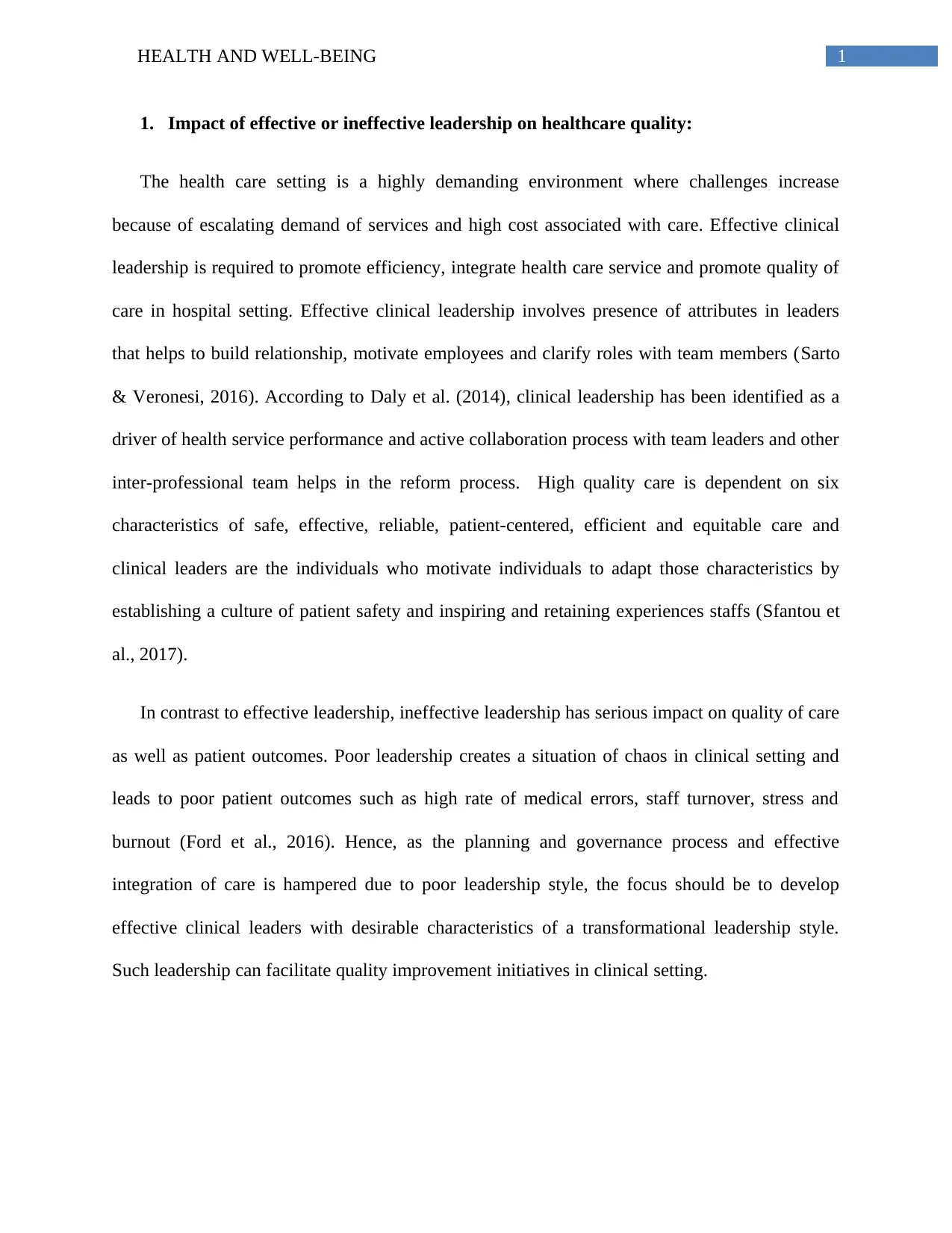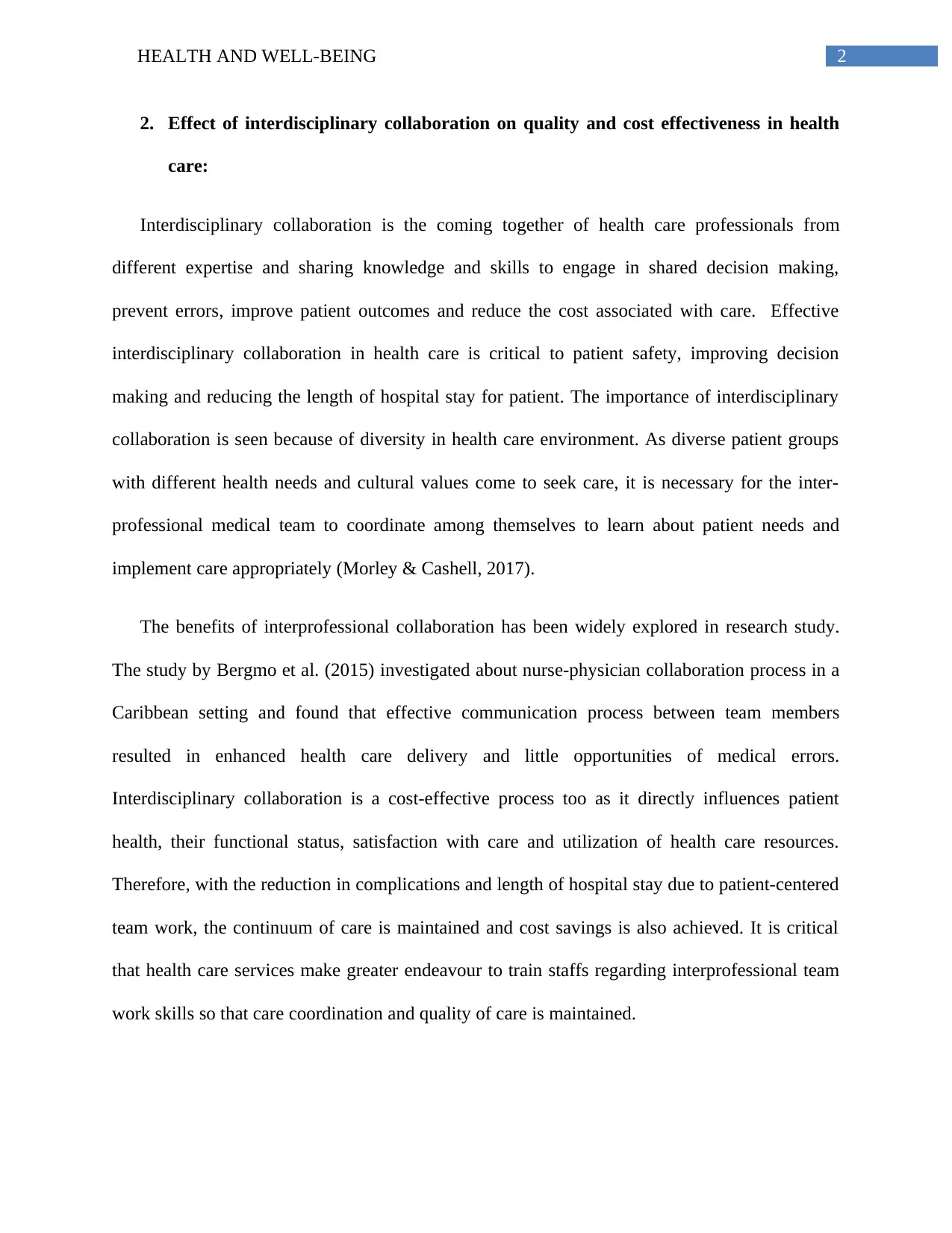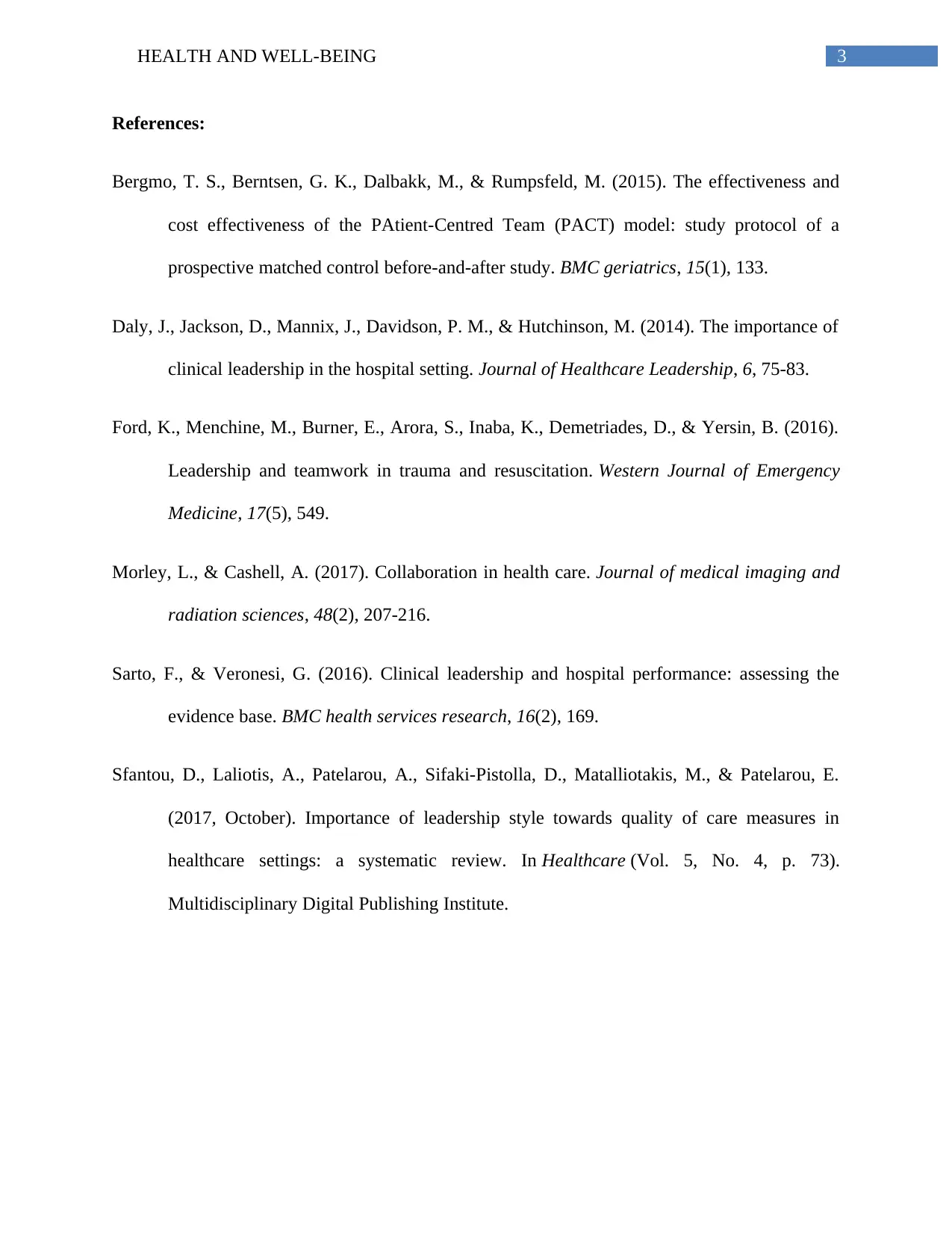Interdisciplinary Collaboration in Healthcare: Report
VerifiedAdded on 2022/11/14
|4
|888
|500
Report
AI Summary
This report examines the critical role of effective and ineffective leadership in healthcare settings, emphasizing its impact on patient outcomes, staff morale, and the overall quality of care. It highlights the importance of clinical leadership in promoting efficiency, integrating healthcare services, and fostering a culture of patient safety. The report contrasts the benefits of transformational leadership with the negative consequences of poor leadership, such as medical errors, staff turnover, and burnout. Furthermore, the report explores the significant advantages of interdisciplinary collaboration, demonstrating how teamwork among healthcare professionals enhances patient safety, improves decision-making, reduces hospital stays, and optimizes resource utilization. The analysis references several studies to support the positive effects of collaboration on patient health, functional status, and satisfaction, ultimately leading to cost savings and improved care coordination.
1 out of 4










![[object Object]](/_next/static/media/star-bottom.7253800d.svg)